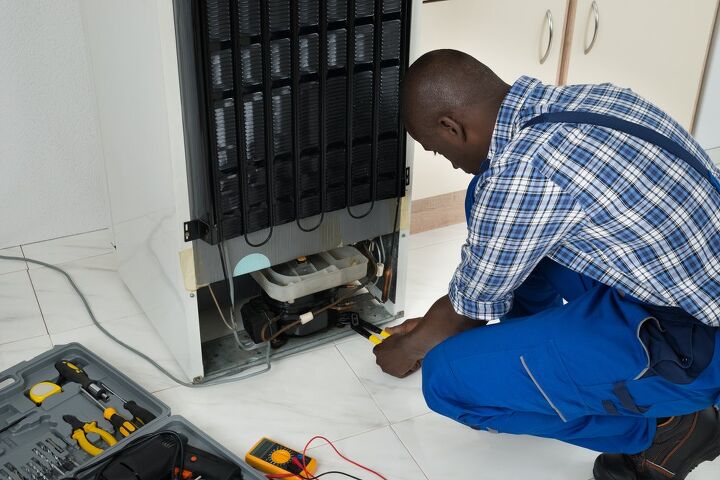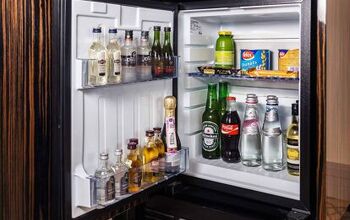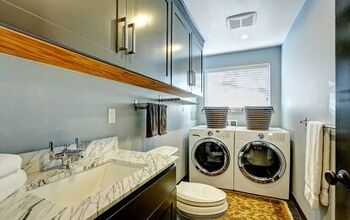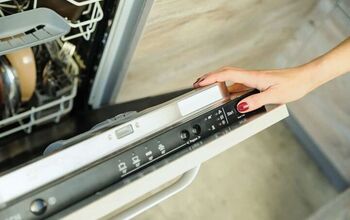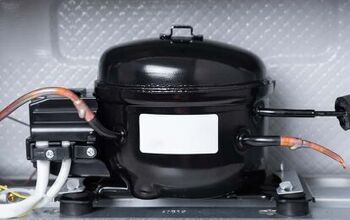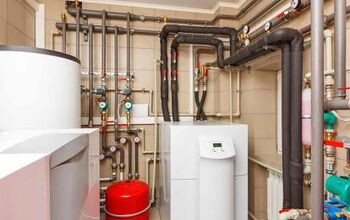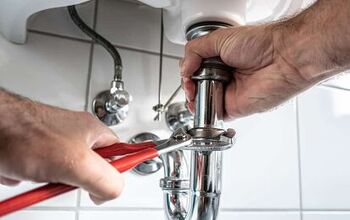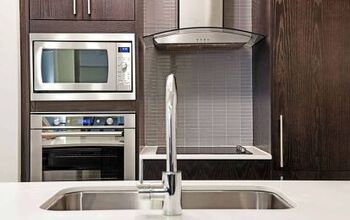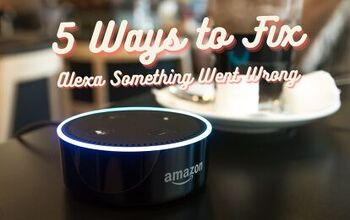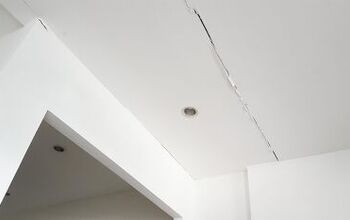Fridge Compressor Starts Then Stops? (Possible Causes & Fixes)

You find your refrigerator is not cooling or freezing properly. A bit of investigation finds that the compressor is starting or trying to start but only runs for a few seconds. It is never long enough to cool the refrigerator thoroughly. Finding the cause of your fridge starting and then stopping needs to happen quickly.
If your refrigerator starts and then stops, this is usually because your compressor may have an under-voltage condition with the power supply or your compressor may be failing. This issue is usually only fixed by either replacing the compressor or your refrigerator. Contact a professional for a solid diagnosis or a second opinion.
Diagnosing a problem with a refrigerator that starts and then stops or won’t start at all can be a challenge for a homeowner. The design of most new refrigerators makes it almost impossible to access the parts that may fail. Taking a systematic approach to troubleshooting is one way to approach these problems.
Do You Need Appliance Repair Services?
Get free, zero-commitment quotes from pro contractors near you.

A Systematic Diagnostic Approach
Our suggestions to diagnosing the problem of a fridge compressor that starts and stops or won’t start at all begin with the most obvious and easiest to remedy causes. Hopefully, you can work through our step-by-step procedure to solve your refrigerator problem. However, you should understand that at some point, you may require the services of a qualified appliance technician to diagnose and repair some problems.
Step 1: Check the Power Supply
If the wiring in your home is not up to the task of supplying your refrigerator with enough electricity, the compressor may short cycle. Inadequate power is often the case when a homeowner buys a new, much larger refrigerator for an older home.
The wiring may not supply the higher starting voltages and amps needed for bigger compressor motors. If you suspect that this is the case, you must consult with a licensed electrician to make the necessary repairs to your home wiring to handle the higher needs.
Step 2: Is an Extension Cord Involved?
An improperly sized extension cord can cause the same sorts of inadequate power problems. If the extension cord is not large enough to handle the electrical load, the compressor may short cycle. If you must use an extension cord with your refrigerator, make sure that the wire size is substantial enough to handle the necessary loads.
We recommend that you use an extension cord long enough to make the connection without any extra leftover. At a minimum, the wire size should be 12 gauge. The extension cord should also have a ground wire. Avoid lightweight two-wire extension cords.
Step 3: Clean the Refrigerator Coils and Compressor
Refrigerators will often short cycle when dust and debris build up on the coils and around the compressor. The dust and debris prevent the refrigerant from cooling and condensing properly, making the compressor work harder.
Dust and debris around the compressor act like an insulation blanket. The compressor depends on air movement to keep cool. Dust and debris around the compressor raise the internal temperature, often leading to an overheat situation. The overheat sensor will shut the compressor off to prevent damage.
If you can access the coils and the compressor, use a vacuum cleaner with a wand attachment to clean the surfaces and around the compressor.
Step 4: Check the Thermostat Setting on the Refrigerator
The thermostat that controls the temperature in your refrigerator is in the refrigerator compartment. You may inadvertently change the thermostat setting while accessing the refrigerator and its contents. Check the thermostat and make sure the setting is correct.
Step 5: Check the Air Pass-through from the Freezer to the Refrigerator
Most combination refrigerator-freezers do most of the cooling around the freezer compartment and pass cold air to the refrigerator through a vent or vents. If these vents are clogged or blocked, cold air cannot get from the freezer to the refrigerator. These vents can clog with ice or frost under certain conditions.
Troubleshooting Refrigerator Compressor Problems
Beyond the Obvious and Easy to Remedy
If these obvious and easy-to-remedy problems don’t solve the problem of a refrigerator that starts and then stops, more serious problems are probably the cause. These types of problems generally require a trained refrigerator technician to diagnose the problem.
However, it pays to understand the issues that may underly the problem and what the possible solutions may be when dealing with refrigerator repairs. The following are some of the most common internal problems that cause refrigerators to start and then stop or not start at all.
Of Compressors and Motors
The heart of your refrigerator is the compressor. The compressor does what its name implies. When the compressor is running, it compresses the refrigerant in the system. As the compressed refrigerant passes through the cooling coils, it expands and absorbs heat. If the compressor doesn’t compress, the freezer or refrigerator won’t stay cold.
A Failed Compressor
A compressor in a refrigerator that has failed can show many symptoms. Sometimes the failure is prolonged and can show several different indications that trouble is on the horizon. These indicators can include:
- A burning or hot odor
- A compressor that starts then stops suddenly
- A noisy compressor that may knock or vibrate
- A sizzling or crackling sound
- A persistent hum when the compressor tries to start
Any of these sounds or smells emanating from your refrigerator can be a bad sign. If you notice any of these symptoms, contact a qualified appliance repair shop and make an appointment for a technician to pay your refrigerator a visit.
The Usual Outcome of a Bad Compressor
Unfortunately, new refrigerators are usually sealed systems and making repairs to the compressor or refrigerant lines is expensive. Usually, it is more economical to purchase a new refrigerator than to repair even a moderately new appliance that has failed.
Get Ready, Get Set, Get the Starter Relay
The starter relay oversees kicking starting the compressor in your refrigerator. If this relay is defective, it can cause the compressor to fail to start or make the compressor short. In older refrigerators, the start relay uses a wire-wound coil to move a plunger magnetically. This plunger closes the electrical circuit to the compressor.
Newer refrigerators use solid-state starter relays. The marvels of modern electronics don’t use coils to make the circuit complete. The downside of electronic starter relays is the problem of inspecting and diagnosing problems. It takes special equipment to diagnose a bad electronic relay.
It is easy to find and remove the starter relay on most refrigerators. However, it is next to impossible for most homeowners to tell if an electronic relay is bad. Some appliance shops will test a relay for you. We suggest that if you suspect a bad relay, call the repair technician to do the job and get the repair warranty that comes with it.
Overload! The Enemy of all Hardworking Appliances
Think about the job your refrigerator performs. When you first plug it in, your refrigerator works continuously, twenty-four hours a day, every day. There are no days off, no holiday, nor any respite.
As such, the compressor is subject to lots of stress. Heat is probably the biggest enemy of refrigerator compressors. The harder the compressor must work to keep things cold, the more heat it generates. Fortunately, your refrigerator compressor has a guardian angel.
The overload protector is the guardian angel of refrigerator compressors. The sole function of the overload protector is to keep watch for too much heat in the compressor. If the overload sensor detects a high-temperature situation, its recourse is to shut down the compressor to prevent damage.
However, even guardian angels can fail. A faulty overload protector can cause short cycling by the compressor or even keep the compressor from starting at all. If you suspect that the overload protector on your refrigerator is at fault, contact a repair technician for further assistance.
Temperature Control that Doesn’t Control the Temperature
It is rare to see problems with the internal controls of modern refrigerators. However, there is always the chance that the thermostat inside the refrigerator is faulty. A bad thermostat can easily cause a refrigerator compressor to short cycle or overrun, causing problems with coil freeze-up or eventual compressor damage.
Bad thermostats on refrigerators can show several symptoms. If your refrigerator acts up in one or more ways, you should call for a technician to test the thermostat and make the needed repairs.
- Constantly changing temperatures in the refrigerator – A faulty thermostat may not stay adjusted. These random thermostat changes cause temperatures in the refrigerator to drift up and down, seemingly at random.
- Intermittent operation – At times, a bad thermostat may work and then quit working for a while and start working again. An intermittent operation can be a devil to diagnose.
- Compressor short cycles – Some electronic thermostats can cause the compressor to short cycle. The thermostat may signal the compressor to start, and as soon as the cooling cycle starts, the thermostat sends the shut-down signal. This situation is also hard to diagnose. A good appliance technician can remedy this problem by installing a new thermostat.
Check this out if you want to learn how hot a fridge compressor should get.
Do You Need Appliance Repair Services?
Get free, zero-commitment quotes from pro contractors near you.

Don’t Ignore Your Refrigerator When It Sends you a Signal
Normally, modern refrigerators are easy to ignore. They work quietly and efficiently for years. However, when something is wrong, most refrigerators send out subtle signals that they are in trouble. Don’t ignore such signals as a compressor that starts and then stops. It could be an expensive message to ignore.
Related Articles

Dennis is a retired firefighter with an extensive background in construction, home improvement, and remodeling. He worked in the trades part-time while serving as an active firefighter. On his retirement, he started a remodeling and home repair business, which he ran for several years.
More by Dennis Howard



